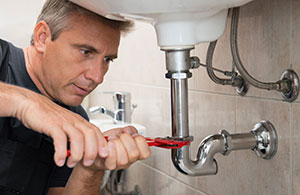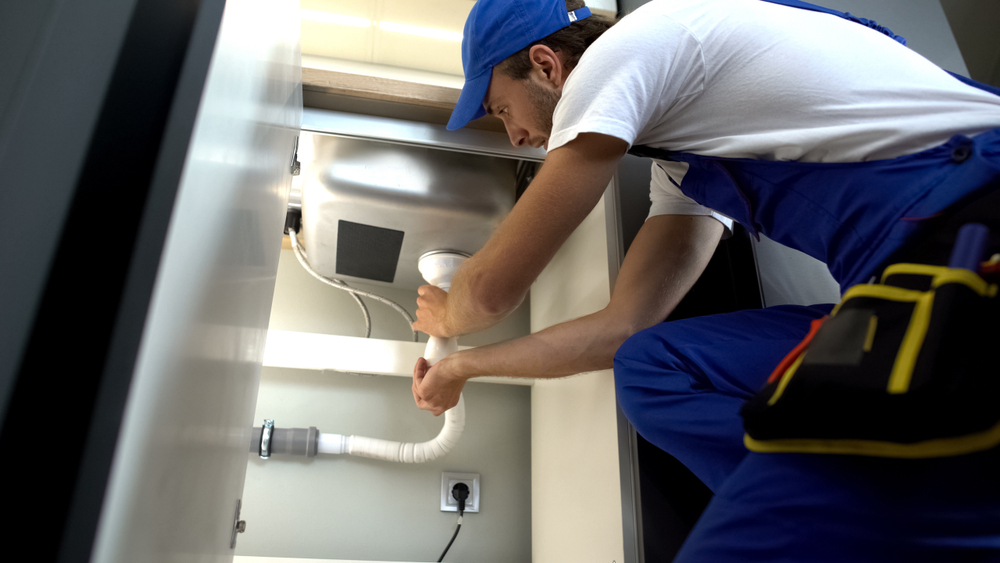Urgent Plumbing Advice: How to Until A Plumber Arrives
Urgent Plumbing Advice: How to Until A Plumber Arrives
Blog Article
Have you been looking for details concerning Expert Tips for Emergency Plumbing Repairs?

Plumbing emergency situations can strike any time, creating stress and anxiety and possible damage to your home. Whether it's a burst pipe, a blocked drain, or a leaky faucet, understanding exactly how to handle the circumstance up until an expert plumbing arrives can save you from further problems. This short article offers vital emergency situation pipes ideas to aid you alleviate damages and gain back control throughout a plumbing dilemma.
Shut off the Supply Of Water
The initial step in any plumbing emergency situation is to shut down the water. For local concerns, such as a dripping faucet or bathroom, turn off the valve near the component. In the case of a major leak or ruptured pipeline, find your home's primary water shut-off valve and transform it off promptly. Understanding the place of these shutoffs ahead of time can conserve useful time during an emergency.
Shut down Your Hot Water Heater
In specific emergency situations, such as a ruptured pipe, it's a good idea to shut off your hot water heater. This stops overheating or damages to the system when water quits streaming. Turn off the power supply to the hot water heater (electrical or gas) and allow it cool off to prevent prospective hazards.
Momentarily Quit a Burst Pipeline
A ruptured pipeline can result in significant water damages in minutes. To minimize the problem:
Call a professional plumber immediately to resolve the issue completely.
Have an Emergency Situation Plumbing Kit
Prepare a standard plumbing emergency package to manage minor concerns efficiently. Your package must include:
Having these devices handy can make a significant distinction in your ability to take care of emergencies.
Unclog Drains Securely.
A blocked drainpipe can be a discouraging and unpleasant problem. Below's just how to tackle it:.
If these methods don't function, stay clear of using excessive force, as it may get worse the blockage.
Manage Overflowing Toilets.
An overruning commode can create immediate mayhem. Right here's what you must do:.
Address Small Leaks with Temporary Fixes.
Tiny leakages can swiftly end up being significant troubles if left uncontrolled. Make use of these short-lived solutions till specialist aid gets here:.
While these fixes aren't permanent, they can aid lessen water loss and damage.
Take Care Of Frozen Water Lines Very Carefully.
In colder environments, frozen pipes are an usual emergency. If you suspect an icy pipeline:.
Know When to Call a Specialist.
While quick fixes can assist temporarily, specific pipes problems require instant professional interest. Call a plumbing if:.
Immediately contacting a professional makes sure the concern is dealt with properly and stops more difficulties.
Prevent Additional Damages.
Taking fast activity to decrease damages can save you time and money in the future. Below's just how:.
Conclusion.
Plumbing emergencies can be frustrating, yet with the right knowledge and tools, you can manage the circumstance properly until assistance gets here. By turning off the water supply, attending to tiny leaks, and utilizing short-lived fixes, you can reduce damage and keep your home safe. Bear in mind, these suggestions are short-lived solutions; always get in touch with a certified plumbing technician to take care of the root cause of the trouble. Preparation and quick thinking are your finest allies in any kind of plumbing emergency situation.
8 Helpful Tips for Managing Plumbing Emergencies at Home
If your plumbing system hasn’t failed once, wait for it because almost everyone has a story to tell. Sometimes, it could be simple emergencies such as a leaking pipe, a blocked cistern, or even a big burst pipe. In situations like this, you need to have some handy tips to save you some money and from possible damages.
Take care of minor issues early.
Sometimes, you could have avoided an emergency by taking proactive measures while it was still early. Some major plumbing emergencies can be a result of an ignored minor issue. We recommend that you have items like plumbing tapes and other related items. A plumbing tape can allow you to manage minor leaks before the plumber arrives.
Cut off the water supply.
This tip is essential in almost any type of leakage problem. For problems like minor leakages in the toilet or kitchen, turn off the supply that takes water to the affected pipes. If the leakage is a major pipe, you must shut off the supply valve to the entire building. This will help you avoid flooding your home and neighbors if you share a flat.
Know your plumbing system
Folks typically move into a new apartment without understanding the water supply around the building. This can prove disastrous if a water emergency arises and the plumber is far away. The previous tip will prove useless if you don’t practice this one. More importantly, know where your water shut-off valve is located – you’ll need that knowledge to prevent potential home floods.
Have some common handy tools
There are lots of plumbing emergencies that you can handle without hiring a plumber. That’s why you must keep some tools available always. Some tools that you can use to fix simple plumbing emergencies easily include plumbing tapes, screwdrivers, thread seal tapes, plungers, pliers, tape measures, and rubber gloves.
Insulate your pipes from cold
You’ll save yourself from many plumbing expenses if you protect your water pipes from the cold. This is because of the harmful effects that cold weather can have on your pipes. During winter, your pipes can burst from being overly expected to freezing temperatures. So, make sure insulators are there to keep the pipes working correctly.
Avoid practices that will clog your toilet.
Many people indulge in practices that can damage the plumbing system of the entire building. One of these is when they use their toilet to dispose-off garbage. They flush all kinds of things, such as paper towels, bandages, hairs, female sanitary products, etc., down the toilet. This will block your toilet in the long run, incurring unnecessary expenditures. Dump such waste in the trash instead.
Check your dials regularly.
Sometimes, there could be leakages in your home without noticing them in time. So, constantly monitor your water meter dial. If the dial is reading when there is nobody using water, this is an indicator that there is leaking. Check for leaks immediately. Call a plumber as soon as possible if you can’t find any.
https://www.constructionplacements.com/8-helpful-tips-for-managing-plumbing-emergencies-at-home/

As a person who reads about Plumbing Emergencies: Tips on What To Do Before, I think sharing that piece of content was appropriate. Liked our write-up? Please share it. Help others discover it. Bless you for your time. Return soon.
Set An Appointment Report this page